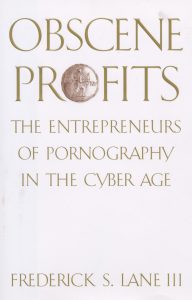[Update: 2017-07-12] As expected, last night’s discussion was lively. While there were considerable areas of agreement (beginning with the moral imperative to combat child sex trafficking), there were also some provocative debates about the role of major tech companies, the boundaries of speech, and the best options for moving forward. Kudos to host Cheri Roberts for putting together this great panel.
Click on the widget below to listen to the discussion or download it to listen later.
A powerful new documentary, I Am Jane Doe, sheds necessary light on the interplay among Section 230 of the Communications Decency Act, online classified advertisers (most notably the site Backpage), and the epidemic of sex trafficking that occurs in the United States and around the world. The trailer for I Am Jane Doe is embedded below.
PANEL DISCUSSION PODCAST
On Wednesday, July 12 at 5pm Pacific/8pm Eastern, I will be participating in a podcast panel discussion with the director of I Am Jane Doe, Mary Mazzio (@marymazzio); Attorney Erik Bauer (@ErikBauerlaw), who is litigating the most successful lawsuit by trafficking victims against Backpage so far; and Challenging the Rhetoric host Cherie Roberts (@CTRNewsFeed). I expect that it will be a fascinating, wide-ranging discussion about a number of significant free speech and Internet governance issues.
Section 230 of the Communications Decency Act (CDA)
This topic is particularly germane to my work because in many ways, the Communication Decency Act was the start of my professional writing and lecturing career. I was fascinated by the debate over the law and the glowing media attention that was provided to the nascent online adult industry. Shortly after the U.S. Supreme Court decision that struck down the “indecency” provisions of the CDA (Reno v. ACLU, June 26, 1997), I wrote a proposal that eventually became Obscene Profits: The Entrepreneurs of Pornography in the Cyber Age (Routledge 2000).
While the battles over indecency and obscenity online attracted the most attention, Section 230 of the CDA may well have had the most long-lasting impact on the development of the Internet. Remarkably enough, it consists of a single sentence:
No provider or user of an interactive computer service shall be treated as the publisher or speaker of any information provided by another information content provider.
In simpler terms, Section 230 means that online services like Twitter, Facebook, Instagram, Reddit and so on can’t be sued if one of their users posts something on the service that might create legal liability. Specifically, if someone posts something that is libelous or that inflicts emotional harm, the victim can sue the person who posted the message but NOT the online service on which the message was posted.
Not surprisingly, Section 230 is strongly supported by virtually every major tech corporation. The Electronic Frontier Foundation, which receives significant contributions from those same companies, is a powerful advocate on behalf of Section 230, and has produced an infographic that outlines the reasons for its position. (Interestingly, the infographic is a joint production between EFF and CraigConnects, an advocacy group created by Craig Newmark, the founder of Craigslist, which of course has had its own battles over alleged complicity in prostitution and sex trafficking.)
Should Section 230 Be Amended?
Included in the list of online services that benefit from the protections of Section 230 is Backpage, a publisher of classified advertisements. Until recently, Backpage provided advertisements for “adult services,” which many contended were actually offers for prostitution and child sex trafficking. On the eve of a hearing before Congress earlier this year, Backpage dropped its “adult services” section but allowed the ads to migrate to its “Dating” section.
With the exception of Attorney Erik Bauer’s state lawsuit in Washington, no litigation by sex trafficking victims has been successful in piercing the protection provided to Backpage by Section 230. The question before Congress is whether the statute should be amended to some measure of responsibilty on companies for the content that appears on their sites.
Senator Rob Portman (R-Ohio) is chair of the Senate Permanent Subcommittee on Investigations, which has been looking into the issue of sex trafficking on Backpage and the extent of site’s awareness and possible facilitation of the criminal activity. Portman told The Washington Post that he is “looking forward” to drafting legislation that would narrow the sweeping protection provided by Act 230. (I placed a call to his office to check on the status of that drafting and will update this post when I hear back.)
A Difficult Drafting Challenge
No rational person would disagree with Attorney Bauer’s contention that we should not advertise children for sex, ever. If Backpage “knowingly” solicited or distributed advertisements for sexual encounters with children, which documents recently seized in the Philippines suggest, then the company and its executives should be subject to the most severe criminal penalties available. Under those circumstances, recovery by sex trafficking victims for emotional and physical harm makes sense.
Child sex trafficking is a profound violation of human rights and we have a moral obligation to combat it vigorously. There are, however, legitimate practical questions to consider. Should online companies be required to investigate every single advertisement they accept? Obviously, most sites would throw up their hands and simply shut down any sexually-oriented ads. Some might see that as a victory, but 1) not all such ads are criminal; and 2) it would have the effect of driving much of this activity underground, where it is harder to police. (It is worth noting that the young women interviewed in I Am Jane Doe were rescued in part because their photos were viewable on Backpage.)
More importantly, we do stand on the edge of a particularly slippery slope here with respect to claims for civil damages. As someone who researches and writes about cyberbullying and the rise of the digital mob, I am genuinely concerned about the emotional (and sometimes physical harm) that can result from online speech. At the same time, I believe that exposing sites like Facebook and Twitter to legal liability for those harms is simply untenable. Risk-averse companies would drastically limit online speech to the most banal or anodyne comments; virtually all of the benefit of the Internet would rapidly wither away.
I am a passionate advocate for the First Amendment, but not an absolutist: I don’t want people to have the freedom to shout “Fire” in a crowded theater, I think the government should block fraudulent health claims, and child pornography is simply illegal.
But ultimately, I think there are more effective ways to combat child sex trafficking than by amending Section 230. We should be investing more in effective policing, in social programs that fight the underlying causes of trafficking, and in K-12 educational programs that will help all children (but particularly young women) develop the emotional and psychological strength to avoid becoming victims.
In I Am Jane Doe, director Mary Mazzio makes a compelling argument for a new approach to corporate responsibiliy for online speech. But particularly when discussing possible restrictions of speech online (even commercial speech), it is important to rememember the old legal maxim that “Hard cases make bad laws.”


1 comment